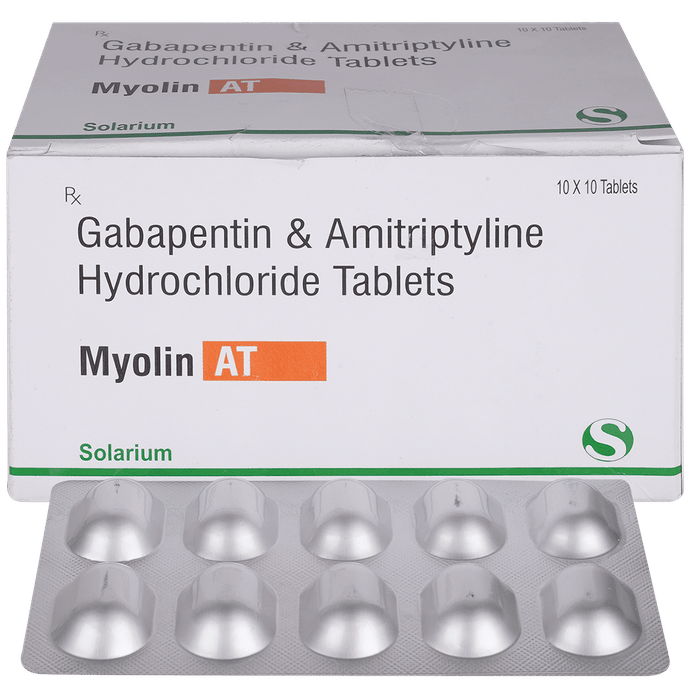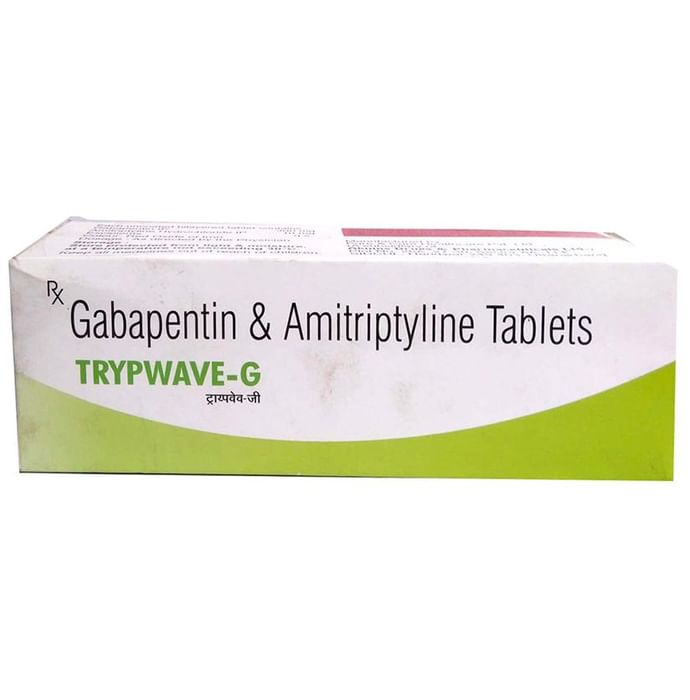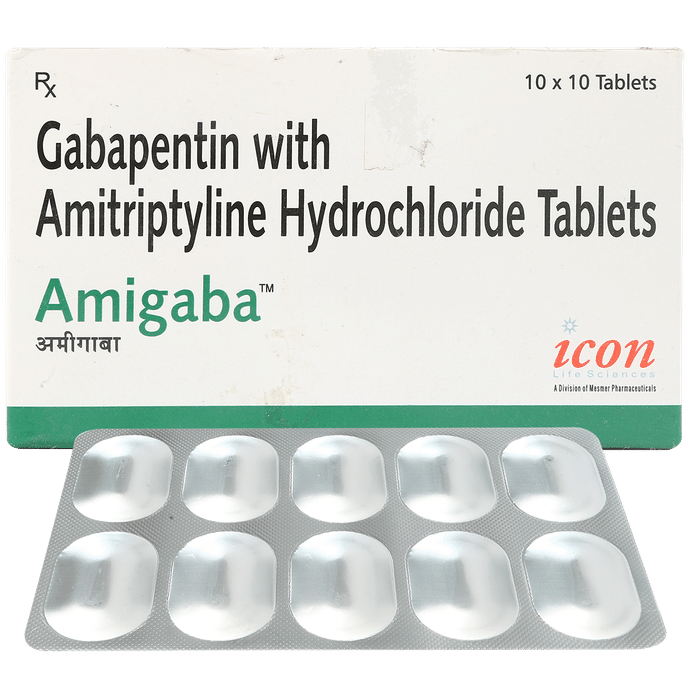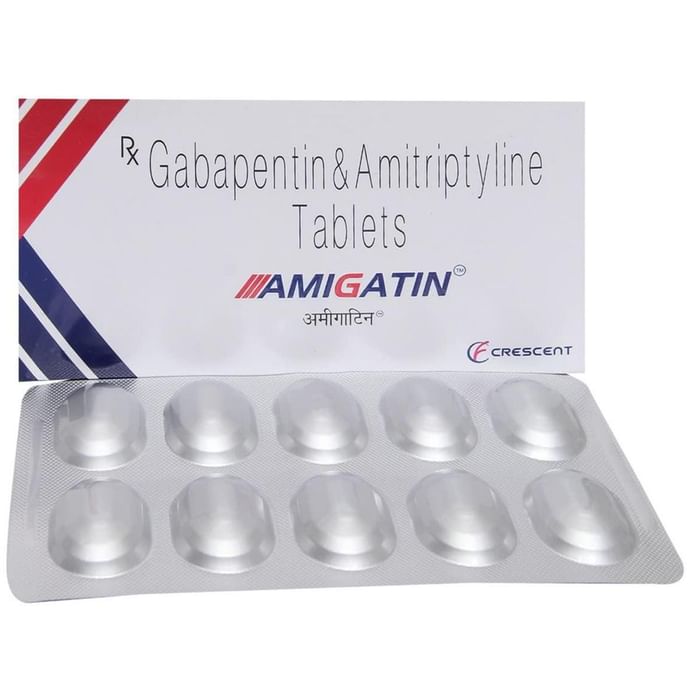Gabaval AT Tablet
GABAPENTIN + AMITRIPTYLINE
The recommended way to take Gabaval AT Tablet is orally with or without food preferably at bedtime It is important to take it at the same time every day in order to maintain a consistent level of medication in the body Please follow the dosage and duration instructions provided by your doctor If you accidentally miss a dose take it as soon as you remember It is crucial to complete the full course of treatment even if you start feeling better Do not discontinue the medication abruptly without consulting your doctor as it may lead to an increased frequency of seizures and potentially lifethreatening situations Avoid taking antacids simultaneously with this medicine as they can hinder your bodys ability to absorb the medication Some common side effects of Gabaval AT Tablet include constipation difficulty urinating weight gain and dry mouth It may also cause dizziness and drowsiness so refrain from driving or operating heavy machinery until you understand how this medicine affects you To manage any potential weight gain it is recommended to exercise regularly and maintain a balanced diet Prior to taking this medication inform your doctor if you have kidney or liver disease Additionally disclose all other medications you are currently taking as some may interact with Gabaval AT Tablet and make it less effective or alter its mechanism of action If you are pregnant planning to become pregnant or breastfeeding please inform your doctor before starting this medication


Can I stop taking Gabaval AT when my pain is relieved?
No, you should not stop taking Gabaval AT even if your pain is relieved. Continue to take it as advised by your doctor. If you stop taking Gabaval AT suddenly, you may experience withdrawal symptoms such as anxiety, sleeping difficulties, nausea, pain and sweating. You may need to gradually taper the dose before you stop the medication completely.

What is Gabaval AT?
Gabaval AT is a combination of two medicines: Gabapentin and Amitriptyline. This medicine is useful in the treatment of nerve pain (neuropathic pain). This medicine calms the damaged or overactive nerves by acting on the brain, thereby decreasing the pain sensation.

Can I stop taking Gabaval AT when my pain is relieved?
No, you should not stop taking Gabaval AT even if your pain is relieved. Continue to take it as advised by your doctor. If you stop taking Gabaval AT suddenly, you may experience withdrawal symptoms such as anxiety, sleeping difficulties, nausea, pain and sweating. You may need to gradually taper the dose before you stop the medication completely.

Can the use of Gabaval AT change the color of urine?
Yes, Gabaval AT can the change the color of the urine to blue or green color. This change in color is expected while using Gabaval AT, and it is not harmful. Your urine color becomes normal once you stop taking Gabaval AT.

What is Gabaval AT?
Gabaval AT is a combination of two medicines: Gabapentin and Amitriptyline. This medicine is useful in the treatment of nerve pain (neuropathic pain). This medicine calms the damaged or overactive nerves by acting on the brain, thereby decreasing the pain sensation.

Are there any serious side effects associated with the use of Gabtan AT?
Serious side effects with Gabtan AT are uncommon and rare. Tell your doctor as soon as possible if you notice changes in body temperature, difficulty in breathing, increased heartbeat (palpitations), weakness, unsteadiness when walking, reduced coordination or slowed reactions, unusual changes in mood or behavior such as restlessness, nervousness or excitement, signs of depression, seeing or hearing things that are not there, irrational thinking, blurred or double vision, uncontrollable jerky eye movements, difficulty seeing, signs of frequent infections such as fever, severe chills, sore throat or mouth ulcers. These side effects are uncommon but may be serious and may need urgent medical attention.













.svg)
